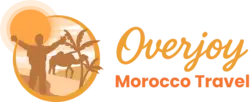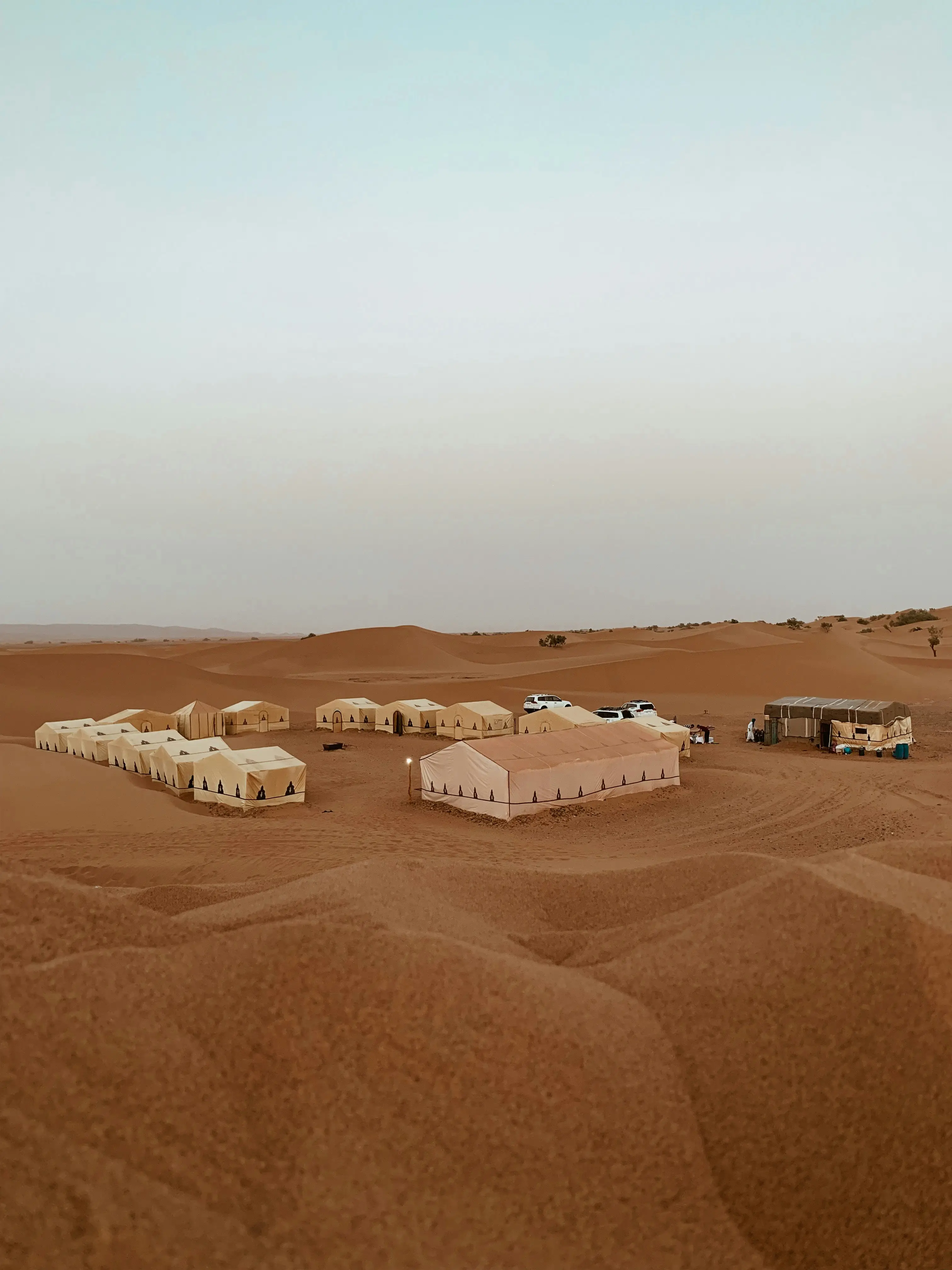Ultimate Morocco Desert Tour Preparation Guide
Everything You Need to Know Before Your Sahara Adventure
Proper preparation turns a Morocco desert tour from a simple trip into a life-changing experience. This guide helps you prepare for everything—from seasonal packing strategies to cultural insights—ensuring you’re ready for the beauty and challenges of Morocco’s most spectacular landscapes.
☀️ Understanding Morocco’s Desert Climate
Seasonal Weather Patterns
Spring (March–May): The Golden Season
- Day: 22–28 °C (72–82 °F)
- Night: 8–15 °C (46–59 °F)
- Minimal rainfall & blooming wildflowers
- Perfect for photography & family travel
Summer (June–August): The Challenging Season
- Day: 40–45 °C (104–113 °F)
- Night: 25–30 °C (77–86 °F)
- Extreme heat & intense sun
- Fewer crowds, lower prices
Autumn (September–November): Return to Comfort
- Day: 25–32 °C (77–90 °F)
- Night: 10–18 °C (50–64 °F)
- Clear skies & ideal for stargazing
- Harvest time in oases
Winter (December–February): Cool & Crisp
- Day: 15–22 °C (59–72 °F)
- Night: 0–8 °C (32–46 °F)
- Cold nights, budget travel time
- Bright, clear days
Microclimate Considerations
- Atlas Mountains: Temp drops ~6 °C per 1,000 m elevation—snow even in spring
- Merzouga Desert Edge: Sharp day/night temperature swings; hot sand
- Oasis Towns: Palm groves moderate temperature, increase humidity
🎒 Comprehensive Packing Guide
Clothing by Season
Spring Packing List
- 2–3 lightweight, long pants & long-sleeved shirts
- Short-sleeved shirts for warm days
- Comfortable walking shoes; hat & scarf for sun and respect
Summer Packing List
- 3–4 ultra-lightweight long pants & UV-protective shirts
- Wide-brimmed hat, breathable closed-toe shoes
- High SPF sunscreen & lip balm; extra sunglasses
Autumn Packing List
- Layer-friendly medium-weight pants, shirts & sweater
- Light rain jacket; comfortable evening wear
Winter Packing List
- Thermal base layers; insulated coat, gloves, warm hat
- Thermal underwear & wool socks; waterproof shoes
Technical & Personal Equipment
- DSLR/mirrorless camera with tripod & extra batteries
- Universal adapter (Europe); 20,000 mAh power bank; solar charger
- First aid kit; sunscreen & moisturizer; lip balm & eye drops
- Quick-dry towel, duct tape, multi-tool, headlamp, snacks
🏕️ Cultural Preparation & Etiquette
Moroccan Cultural Context
- Islamic practices guide daily routines: prayer times, Ramadan observances
- Respect for elders, conservative gender norms in rural areas
- Tea is sacred—refusing can be impolite
Dress Code Guidelines
- Cover shoulders & knees; prefer modest, loose clothing
- Culture-appropriate attire for desert camping, city visits, and rural areas
- Head covering for women in traditional areas; shoes off in homes & mosques
Language & Communication Essentials
- Greetings: "As‑salam u alaykum" / “Wa alaykum as‑salam”
- Key words: Shukran (thank you), Min fadlik (please), Ayna...? (where is...?)
- Try French phrases too: Bonjour, Merci, Parlez-vous anglais?
- Speak slowly, use gestures, rely on your guide for complex conversations
🏥 Health & Safety Preparation
Health Precautions
- Visit a travel clinic 4–6 weeks before departure
- Ensure routine and recommended vaccinations are current (Hepatitis A/B, Typhoid)
- Bring extra meds, anti‑diarrheal, hydration tools, and heat precautions
Desert-Specific Safety Tips
- Never travel alone; always follow your guide
- Carry water & sun protection; monitor for heat exhaustion
- Use hotel safes, secure copies of documents, avoid risky areas
💰 Money & Budget Planning
Currency & Payments
- Use Moroccan Dirham (MAD) only; cannot be imported/exported
- Accept cash in rural areas—credit cards work in larger cities
- Bargain in souks; expect to pay at formal venues
Tipping Guide
- Tour guide/driver: 100–150 MAD/day; Camel handler: 30–50 MAD
- Desert camp staff: 20–30 MAD/night; Restaurant servers: 10–15%
📋 Pre‑Departure Checklist
30 Days Out
- Passport & visa checks; insurance bought
- Travel medicine appointment; extra copies of docs
14 Days Out
- Forecast check; finalize pack list
- Set up phone, maps, translation apps
7 Days Out
- Reconfirm bookings; airport transfers arranged
- Charge all electronics; emergency supplies ready
Day of Travel
- All docs & meds in carry‑on; travel in comfy clothes
- Cameras & valuables safely packed; stay excited!
📷 Photography & Tech Tips
Protecting Equipment
- Use dustproof bags; don’t change lenses in wind
- Keep batteries warm; carry spares and solar power
Photography Tips
- Shoot in golden hours (sunrise/sunset)
- Use lens hoods & tripod for starry night shots
- Clean gear often; use wide-angle lenses for dramatic landscapes
🌱 Sustainability & Meaningful Travel
Cultural Immersion
- Attend tea ceremonies; ask locals questions
- Buy from artisans; support local communities
Eco-Friendly Travel
- Carry out waste; save water; honor wildlife
- Choose eco-conscious operators; consider carbon offsets
🎯 Making the Most of Your Experience
- Ask for help from guides and locals with language or customs
- Dress and behave appropriately with respect and sensitivity
- Stay open-minded & flexible—unexpected moments often become the most memorable
🏁 Conclusion
Proper preparation transforms a Morocco desert tour into an unforgettable experience. From the silence of dunes to the warmth of Berber hospitality, from star-lit skies to mint tea by campfires—this journey will stay with you long after it ends.
Your Sahara adventure awaits—are you ready to answer the call?




